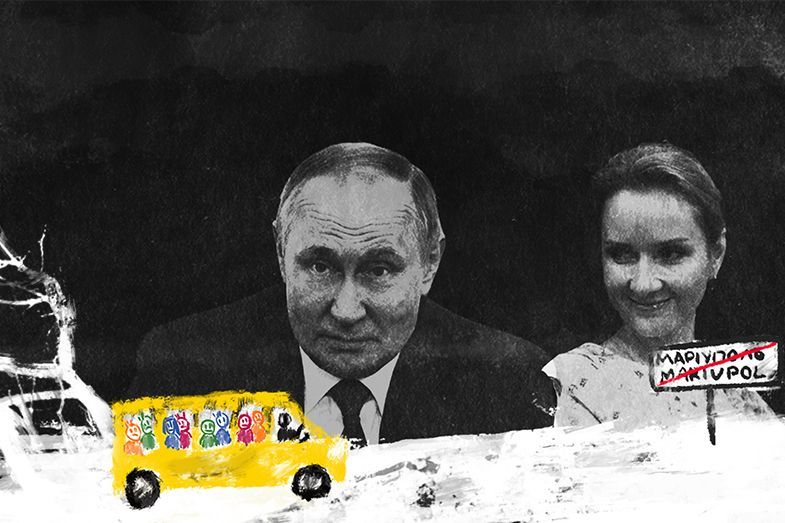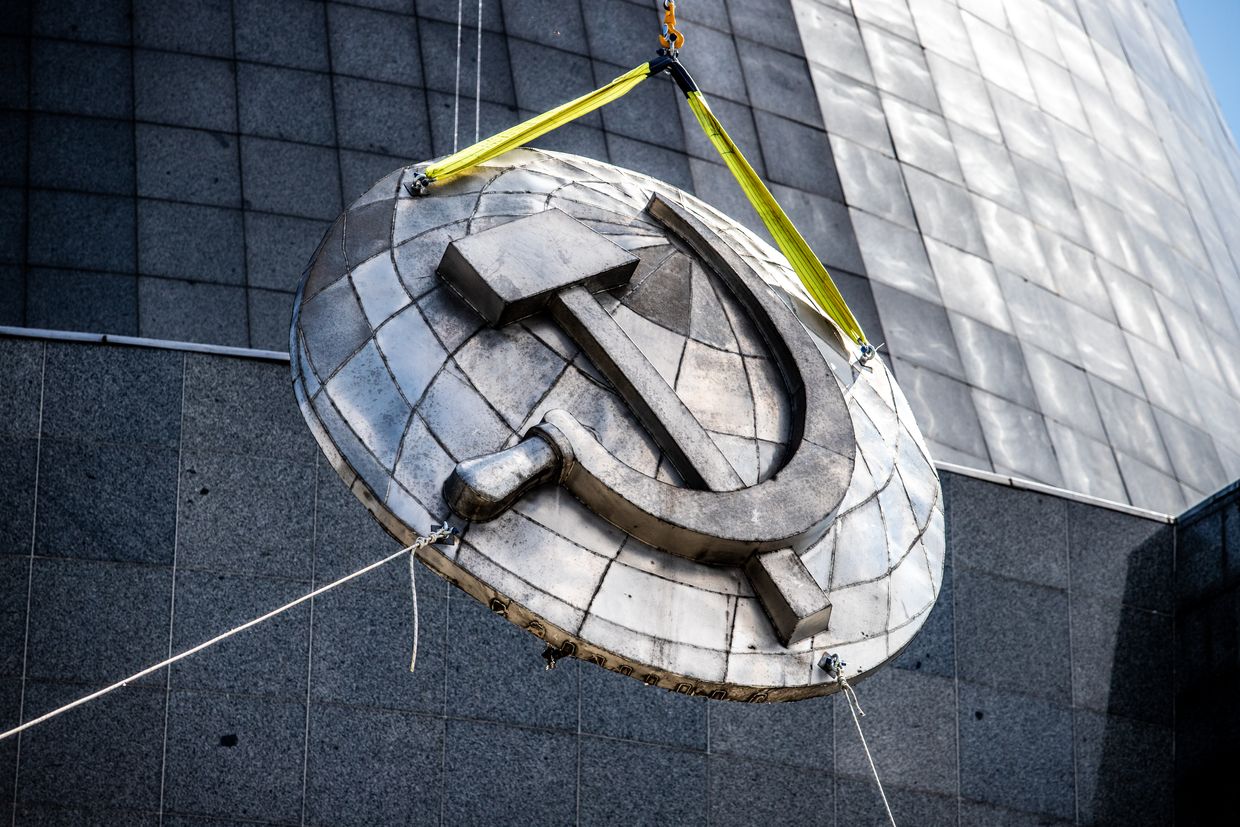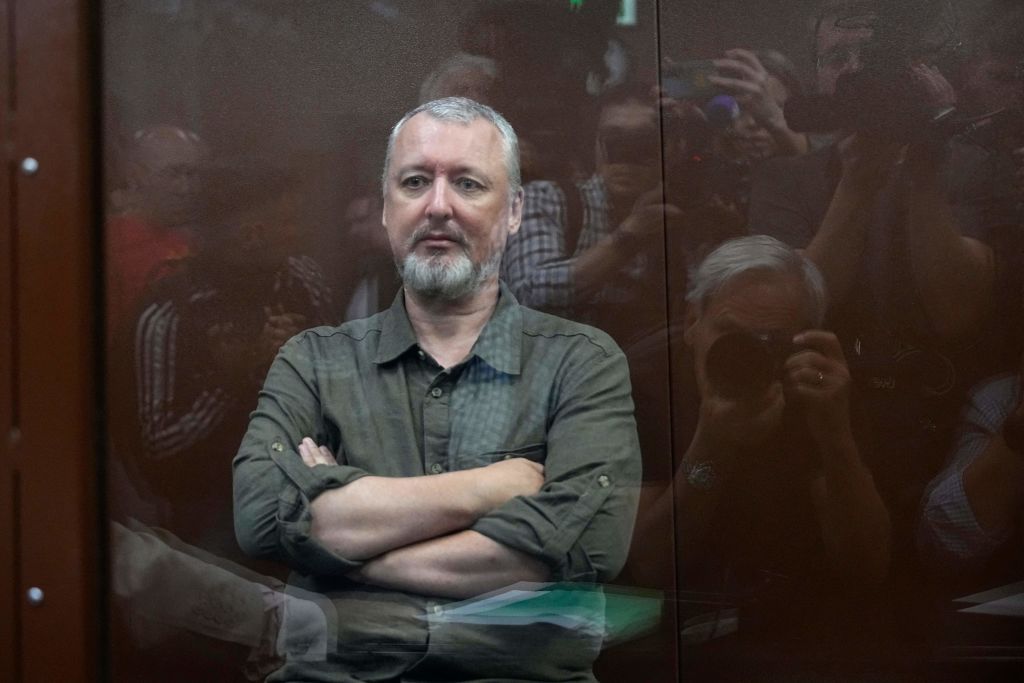Belarus Weekly: Lukashenko's regime accomplice of Russian war crimes, EU says

The European Parliament recognizes the regime of Belarusian dictator Alexander Lukashenko as an accomplice to the crimes committed by Russia in Ukraine, including the mass abduction of children from occupied parts of Ukraine.
The Red Cross recommends that the head of its Belarus branch, Dzmitryi Shautsou, step down until the investigation into his support for Russia’s war ends.
The international community condemns Minsk’s recent decision to ban passport services at its embassies abroad, calling it the “latest in a long line of cynical rejections by the regime of its basic obligations to its people.”
S&P Global Ratings suspends its long- and short-term foreign currency and local currency sovereign credit ratings for Belarus due to “a lack of sufficient and timely information to maintain our ratings.”
British American Tobacco says it’s selling its Russian and Belarusian businesses.
A documentary following the lives of people victims of the migrant crisis engineered by Belarus premiers at the 2023 Venice Film Festival.
European Parliament recognizes Lukashenko’s regime as accomplice to Russia’s crimes
The European Parliament adopted a resolution officially recognizing the Belarusian regime under dictator Alexander Lukashenko as an accomplice to the crimes committed by Russia in Ukraine.
The statement said Lukashenko’s regime shares responsibility for the “destruction and damage caused to Ukraine” during Russia’s full-scale war, and that the Belarusian leadership should be investigated alongside Putin and the Russian political and military leadership.
It urged the European Union and its members to take necessary measures to prosecute Belarusian officials who are “complicit in the crime of aggression, war crimes, crimes against humanity, and crimes of genocide committed against Ukraine.”
A future international tribunal on Russian crimes of aggression must therefore also investigate the leadership of Belarus.
The European Parliament also said it considers Lukashenko’s regime “as responsible” as Russian President Vladimir Putin and Russia’s Children’s Rights Commissioner Maria Lvova-Belova for the illegal transfer of children from Ukraine’s occupied territories.
The International Criminal Court issued an arrest warrant for Putin and Lvova-Belova in March, a move that the European Parliament urges it to make for Lukashenko.
The statement also refers to Belarus as a “satellite state of Russia,” saying Lukashenko is allowing the country to be “absorbed by Russia into a so-called union state, making the risk of direct occupation extremely high, against the clear will of the majority of Belarusians.”
The European Parliament also said athletes from neither Russia nor Belarus should be allowed to compete at international sporting competitions.
IFRC recommends that Belarus’ Red Cross head steps down amid investigation
The International Federation of Red Cross and Red Crescent Societies (IFRC) has recommended that the organization’s Belarus head, Dzmitryi Shautsou, steps down until the investigation into his support for Russia’s war is concluded, Russian state media TASS said.
Shautsou admitted in July to the Belarusian branch’s involvement in the forced deportation of children from Russian-occupied parts of Ukraine to Belarus, referring to them as “recreational trips.”
He was also shown wearing military clothes adorned with the letter “Z,” which is a Russian pro-war symbol.
At the time, the IFRC said it was “not made aware” of his visit to Russian-occupied Lysychansk and is not “involved in any of the (Belarusian branch’s) activities, including with children.”
IFRC spokesperson Tommaso Della Longa reportedly told TASS that the investigation into Shautsou’s actions will end in October and that he was asked to step down until Oct. 3.
“The IFRC confirms that, through the Compliance and Mediation Committee, we recommend that the Secretary General of the Belarusian Red Cross suspend his duties while the case is being considered,” IFRC spokesperson Tommaso Della Longa said, as quoted by TASS.

Meanwhile, Belarusian state media claimed the Belarusian Red Cross branch voted unanimously on Sept. 7 to keep Shautsou in office.
At the meeting, Shautsou vowed to continue “helping” children in Russian-occupied parts of Ukraine by bringing them to Belarus.
According to official estimates, Russia has abducted over 20,000 children from Russian-occupied parts of Ukraine, although the actual number is likely much higher.
Belarusian authorities have themselves confirmed hosting over 1,000 children from Russian-occupied Ukraine.
The International Criminal Court (ICC) issued an arrest warrant for Russian President Vladimir Putin and Russian Children’s Rights Commissioner Maria Lvova-Belova for organizing the illegal transfers.
The European Parliament called on the ICC to issue a similar arrest warrant against Lukashenko for his complicity in the crime, and Ukrainian Foreign Minister Dmytro Kuleba urged the ICC to do the same for Shautsou.
International community condemns Belarus’ decision to block passport services abroad
The U.S., the European Union, and the UN have criticized Belarus’ recent decision to prohibit its embassies from issuing and renewing passports abroad, a move that leaves the regime’s critics vulnerable to prosecution if they return.
As of Sept. 7, Belarusians can only now obtain or renew their passports in Belarus, and can only sell their real estate or cars to either be physically present or produce a power of attorney signed inside Belarus.
The U.S. State Department issued a statement on Sept. 7 condemning the move, saying it “harms thousands of Belarusians living abroad and is the latest in a long line of cynical rejections by the regime of its basic obligations to its people.”
The statement said the U.S. is in close consultation with its European allies and Belarus’ democratic forces led by Belarusian opposition leader Sviatlana Tsikhanouskaya about how to help Belarusians impacted by the “punitive decree.”
EU foreign affairs spokesperson Peter Stano said the decision is an “attempt to force Belarusians living abroad to come back and most likely face reprisals from the Lukashenko regime.”
The UN also criticized the decision, urging Minsk to revise the decree in line with international standards.
Meanwhile, Human Rights Watch urged governments to provide “effective alternatives to documentation, allowing them (Belarusians) to work, travel, and access services.”
The United Transitional Cabinet, a democratic force led by Belarusian opposition leader Sviatlana Tsikhanouskaya, has reportedly accelerated its efforts to develop a “New Belarus” passport, which would provide an alternative to those issued by the state.
Tsikhanouskaya’s senior advisor, Franak Viacorka, suggested that the first passports could be issued in January 2024, although her foreign affairs representative, Valery Kavaleusky, said that all states but two have yet to officially recognize the document.
S&P Global Ratings suspends Belarus due to ‘lack of information’
S&P Global Ratings (S&P) said it suspended its long- and short-term “SD/SD” foreign currency and “CCC/C” local currency sovereign credit ratings for Belarus due to “a lack of sufficient and timely information to maintain our ratings.”
The ratings agency said it’s missing information on Minsk’s “budgetary performance, the composition of its debt stock, and its debt repayment schedule.”
S&P Global Ratings said it would reinstate Belarus’ ratings if the missing information is made available and it meets the agency’s “standards for quality, timeliness, and reliability.”
However, if its requirements are not met, the agency will withdraw the ratings.
Belarus’ international ratings have been on the decline since the onset of Russia’s full-scale war against Ukraine.
Back in April, Fitch Ratings affirmed Belarus’ Long-Term Foreign-Currency (LTFC) Issuer Default Rating (IDR) as Restricted Default (RD), due in part to Minsk’s insistence on covering dollar payments in Belarusian rubles.
British American Tobacco sells businesses in Russia, Belarus
British American Tobacco (BAT), one of the world’s leading tobacco producers, announced on Sept. 7 that it is selling its Russian and Belarusian businesses in compliance with local and international laws.
According to the company’s press release, the buyer is a consortium led by members of BAT Russia’s management team.
The businesses will reportedly be known as the ITMS Group after the sale is finalized, which the company says should be next month.
“Upon completion, BAT will no longer have a presence in Russia or Belarus and will receive no financial gain from ongoing sales in these markets,” the press statement said.
Like many foreign companies, BAT announced it would withdraw from Russia in the wake of the full-scale war against Ukraine.
Venice Film Festival premiers documentary on Minsk-engineered migrant crisis
“Green Border,” a documentary detailing the horrors faced by those experiencing the migrant crisis engineered by Belarus, premiered at the 2023 Venice Film Festival.
The documentary by Polish filmmaker Agnieszka Holland follows the experiences of migrants trapped at Belarus’ “green border” exclusion zone between Belarus and Poland, where they faced violence, starvation, and hypothermia.
Minsk funneled thousands of migrants from the Middle East and Africa, which it brought to Belarus under the false promise of easy asylum in the European Union, to its borders with Latvia, Lithuania, and Poland in retaliation for EU sanctions against Belarus.
Continuous crossing attempts by migrants prompted Poland, Latvia, and Lithuania to build walls along their borders with Belarus.
While acknowledging that Minsk orchestrated the crisis, deemed a “hybrid attack” by the European Union, Holland’s film criticized Poland’s controversial “pushback strategy” toward migrants.
Alternate Belarusian passports
The Spotlight segment provides readers with the historical context of contemporary events in Belarus.
The United Transitional Cabinet’s attempt to issue alternative Belarusian passports in light of Lukashenko’s decision to suspend passport-related services abroad is not the first such move in Belarus’ history.
The Belarusian People’s Republic (BNR), a partially recognized and short-lived state that proclaimed independence in 1918 under German occupation, made a similar move.
The BNR’s council, the Rada, issued Belarusian passports to facilitate travel throughout the newly created state and abroad without fearing arrest.
Historians say the documents were printed at a publishing house in Berlin, Germany, and issued on Belarusian territory.
The 12-page document, embossed with the traditional Belarusian Pahonia emblem, was granted to all those who lived within the boundaries of the BNR or to Belarusians evacuated from German occupation.
When Soviet Russia gained control of Belarusian territories by the end of 1918, the BNR’s council was forced into exile, after which it issued the documents from abroad. It did so from countries like Ukraine, Germany, Turkey, Serbia, Bulgaria, and the Baltic states.
The documents were in use until the 1920s.
















